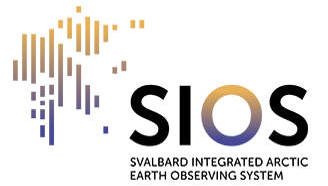
Archivio (469)
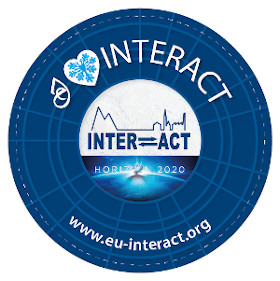 The EU-H2020 funded INTERACT (International Network for Terrestrial Research and Monitoring in the Arctic) opens a call for research groups to apply for Transnational Access and Remote Access to 39 (TA) and 26 (RA) research stations.
The EU-H2020 funded INTERACT (International Network for Terrestrial Research and Monitoring in the Arctic) opens a call for research groups to apply for Transnational Access and Remote Access to 39 (TA) and 26 (RA) research stations.
The current call for Transnational and Remote Access applications is open until 15th November 2022, and it is for access taking place in April -October 2023. You can find the TA/RA Call information, descriptions of stations and their facilities, and registration to the INTERACCESS on-line application system from the INTERACT website.
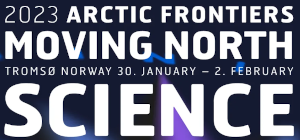 At Arctic Frontiers 2023 Moving North, there will be seven science themes, covering a wide range of topics in physical and social sciences.
At Arctic Frontiers 2023 Moving North, there will be seven science themes, covering a wide range of topics in physical and social sciences.
The call-for-abstracts is now open. New deadline: September 26th 2022
Understanding the past climate variability and sensitivity from glacial archives is fundamental for placing the current changes in a longer-term context. The scientific ice core community is currently putting an enormous effort towards retrieving the oldest continuous ice core from Antarctica (Project Beyond EPICA) and training a new generation of ice core scientists capable of analyzing, interpreting, and modelling the new records that will be obtained (ITN DEEPICE project).
• Session INQUA-MARE: Pole to pole teleconnections as registered in Antarctic and Arctic Holocene Archives
With the expression “pole to pole teleconnections” we refer to climate anomalies in the Arctic region, caused by oceanic or atmospheric processes originating in the Antarctic region and vice versa. These anomalies are well recognized in today’s climate but are detected with difficulties in the paleoclimate archives. Within the frame of the CMP-Coastal & Marine Processes (Coastal and Marine Processes) Commission and of the SPLOSH (Submerged Palaeolandscapes of the Southern Hemisphere) International Focus Group, the “INQUA MARE” scientific action (INtegrated QUAternary MArine REcord at Sensitive Latitudes, 2020-2024) aims to exhaustively explore the interactions between the tropical and polar regions by studying the Holocene marine sediment records from Arctic, Antarctic and Tropical regions, considered as the most sensitive areas to climate change. With this session, we would like to “recap” the first two INQUA-MARE workshops focused on the Antarctic and on the Arctic realms respectively, to open the discussion also to the terrestrial environment, and to promote next INQUA-MARE workshop that will focus on tropical areas and worldwide teleconnections between high and low latitude regions. We therefore welcome contributions that explore (and possibly compare) Holocene marine and terrestrial records from the Antarctic and Arctic regions highlighting anomalies ascribable to the climate fluctuations regime on the opposite Pole.
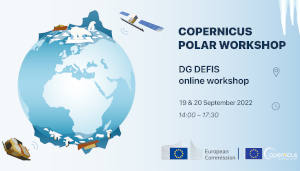 This workshop will present how Copernicus supports EU’s policy actions by contributing to the monitoring of the Polar Regions. The workshop aims to address Polar resilience, the changing Arctic economy and not least the changing climate at both poles, and how Copernicus can support monitoring these key aspects and facilitate interactions and discussions between different stakeholders.
This workshop will present how Copernicus supports EU’s policy actions by contributing to the monitoring of the Polar Regions. The workshop aims to address Polar resilience, the changing Arctic economy and not least the changing climate at both poles, and how Copernicus can support monitoring these key aspects and facilitate interactions and discussions between different stakeholders.
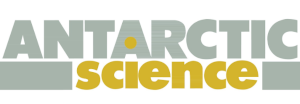 Call for Papers - Evolution of East Antarctic Landscape, Cryosphere and Climate during Quaternary. This special issue propose to provide a state-of-the-art perspective on the geological-geomorphological-cryosphere-climate variability in East Antarctica, with an objective to summarise and synthesize the current scientific knowledge. More informations.
Call for Papers - Evolution of East Antarctic Landscape, Cryosphere and Climate during Quaternary. This special issue propose to provide a state-of-the-art perspective on the geological-geomorphological-cryosphere-climate variability in East Antarctica, with an objective to summarise and synthesize the current scientific knowledge. More informations.
Deadline title: 15 August 2022 - Deadline manuscript submission: 15 October 2022
The aim of the online conference is to promote the work of PhD students, postdocs, researchers, senior scientists, and academics who are actively contributing to the science of Svalbard, to review the state-of-the-art Earth Observation and Remote Sensing applications in Svalbard and to provide a social experience to the Svalbard scientific community.
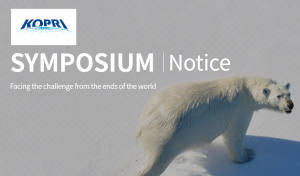 The 27th International Symposium on Polar Sciences - Two decades of Korean Arctic research: Looking back to look forward
The 27th International Symposium on Polar Sciences - Two decades of Korean Arctic research: Looking back to look forward
The 27th International Symposium on Polar Sciences organized by Korea Polar Research Institute (KOPRI) will be held online on September 20-21, 2022. This symposium aims to bring polar scientists together to discuss their research findings and promote international collaborative research. Official Site
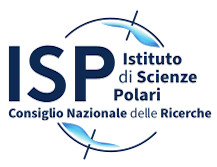 Avviso di selezione n° ISP-003-2022-VE-Prot 0046315 - SCADENZA 15 Luglio 2022
Avviso di selezione n° ISP-003-2022-VE-Prot 0046315 - SCADENZA 15 Luglio 2022
Pubblica selezione per il conferimento di n. 1 assegno per lo svolgimento di attività di ricerca nell’ambito del Progetto DTA.AD001.376 Funzionamento e supporto Base artica Italiana, da svolgersi presso il CNR-Istituto di Scienze Polari - Sede di Venezia.
Tipologia di Assegno (B): Assegno Professionalizzante
SCARICA IL BANDO
Graduatoria
ISP-Newsletter n.4 Giugno/June 2022 - (Ita - Eng)
NUMERO SPECIALE DEDICATO AI 25 ANNI DI DIRIGIBILE ITALIA
In questo numero: GdL Comunicazione (Qui Dirigibile Italia), Angelo P. Viola (ARTIST: il primo progetto europeo), Vito Vitale (25 anni a Dirigibile Italia). La ricerca italiana a Ny-Ålesund: Andrea Spolaor (1 - Quanti anni perdono ogni anno i ghiacciai delle Svalbard?), Maurizio Azzaro (2 - Gli ecosistemi di Ny-Ålesund e la metafora del Climate Canary), Antonietta Ianniello (3 - Effetti atmosferici ed interazioni aria-neve), Leonardo Langone (4 - La ricerca marina del CNR nel Kongsfjorden).
In this issue: Working Group on Outreach and Communication (Here Dirigibile Italia), Angelo P. Viola (ARTIST: the first European project), Vito Vitale (25 years at Dirigibile Italia). The Italian research at Ny-Ålesund: Andrea Spolaor (1 - How many years do Svalbard glaciers lose each year?), Maurizio Azzaro (2 - Ny-Ålesund ecosystems and the Climate Canary metaphor), Antonietta Ianniello (3 - Atmospheric effects and air-snow interactions), Leonardo Langone (4 - CNR marine research in Kongsfjorden).
Questo indirizzo email è protetto dagli spambots. È necessario abilitare JavaScript per vederlo. - Questo indirizzo email è protetto dagli spambots. È necessario abilitare JavaScript per vederlo.
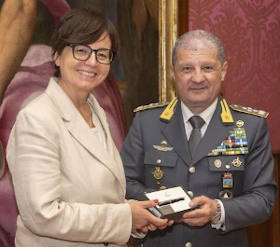
Il 13 giugno 2022 il Presidente del Consiglio Nazionale delle Ricerche, Prof.ssa Maria Chiara Carrozza, e il Comandante Generale della Guardia di Finanza, Gen. C.A. Giuseppe Zafarana, hanno sottoscritto un Protocollo d’intesa allo scopo di disciplinare una collaborazione tre le due istituzioni coniugando le potenzialità operative e tecnologiche del Corpo con le competenze scientifiche e di ricerca del CNR.
L'accordo è il risultato di un’intensa collaborazione che prosegue da 20 anni e che ha introdotto importanti innovazioni sul piano tecnologico, organizzativo e gestionale per il controllo e la tutela del territorio e del mare. In quest'ambito GdF e CNR intendono anche collaborare anche in Artico, presso la Stazione Dirigibile Italia, nell’addestramento del personale che svolge attività di ricerca nell’ambito del Climate Change delle aree polari.
More...
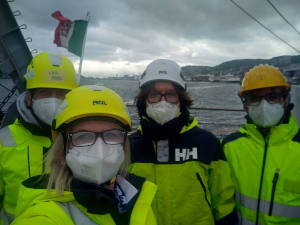 9 Giugno 2022
9 Giugno 2022
Parte oggi dal porto di Tromsø la spedizione Artica NREP-22 (Nordic Recognized Environmental Picture 22) a bordo della NRV Alliance. Sono coinvolti i ricercatori CNR-ISP (L.Langone, P.Giordano, F.DeRovere) in collaborazione con NATO-CMRE e OGS (P.Mansutti).
Lo scopo scientifico della spedizione è monitorare le caratteristiche e le dinamiche della risalita delle masse d’acqua Atlantiche fino alle alte latitudini di 80°N e studiare i processi di mixing fisico e biogeochimico delle acque Atlantiche e Artiche, i flussi di particellato organico e inorganico, e la biodiversità planctonica lungo tutta la scarpata occidentale delle Isole Svalbard.
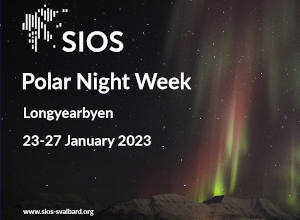 The fifth SIOS Polar Night Week (PNW) will take place in Longyearbyen, 23-27 January 2023.
The fifth SIOS Polar Night Week (PNW) will take place in Longyearbyen, 23-27 January 2023.
This annual meeting brings the SIOS community together for science seminars, working group meetings and plenary discussions. One of the highlights is the release of newest issue of the State of Environmental Science (SESS) report.
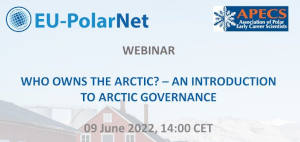 The EU-PolarNet 2 webinar gives an overview of the legal regime of the Arctic and outlines the existing Arctic governance structures.
The EU-PolarNet 2 webinar gives an overview of the legal regime of the Arctic and outlines the existing Arctic governance structures.
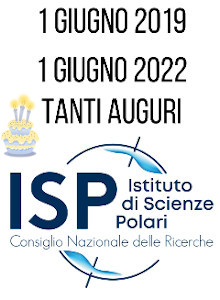
Visione strategica, multidisciplinarità e interdisciplinarità indirizzate alla ricerca in ambienti estremi: queste le parole che guidano da tre anni l’Istituto di Scienze Polari, la sua missione e i suoi ricercatori. Quattro sedi principali sul territorio italiano, che raccolgono ricercatori e ricercatrici provenienti da ambiti di ricerca diversi.
Intensa attività di ricerca nelle regioni polari in Artico a Ny-Ålesund (Isole Svalbard) e in Antartide a Mario Zucchelli e Concordia. Collaborazioni con università, istituzioni, centri di ricerca, nazionali ed internazionali legami che rendono più forte e attivo l’Istituto. Cooperazione internazionale, che vede la presenza dei ricercatori dell’istituto in diversi organismi e tavoli di discussioni in importanti ambiti che si occupano di ricerca polare.
Per festeggiare questo compleanno di ISP, un ringraziamento va a tutte le ricercatrici e ricercatori, che nelle diverse forme contrattuali contribuiscono quotidianamente allo sviluppo delle conoscenza in ambito polare. Un prezioso ringraziamento va al personale amministrativo e tecnico che quotidianamente rende possibile con serietà, impegno e abnegazione lo svolgimento delle attività dell’Istituto costituendo un punto di riferimento per tutta la comunità.
 Ministero dell'Universita e Ricerca
Ministero dell'Universita e Ricerca
Programma Ricerche Artico
Programma Nazionale di Ricerca in Antartide
 Ministero degli Affari Esteri e della Cooperazione Internazionale
Ministero degli Affari Esteri e della Cooperazione Internazionale
L'Italia e l’Artico
L’Italia e l’Antartide







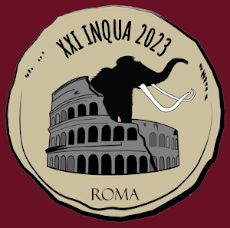 •
• 